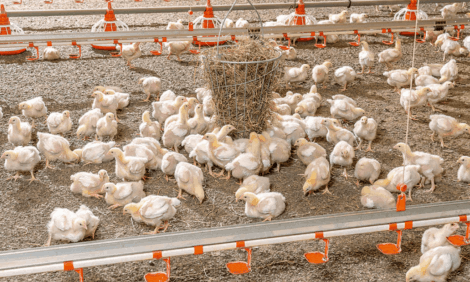



Interaction Between Breeder Age and Hatching Time Affects Intestine Development and Broiler Performance
Researchers in Turkey have explored the relationships between breeder age and hatching time and subsequent chick performance, concluding that that breeder age should be taken into consideration in the management of hatching eggs during incubation.In a paper in Livestock Science, Mohamed Ibrahem El Sabry and colleagues at Ege University in Turkey report their investigation into the effects of breeder age and hatching time on hatching performance, morphological changes in jejunum and post-hatch performances until slaughter age.
A total of 544 eggs were obtained from two Ross broiler breeder flocks at 32 (young) and 49 (old) weeks of age. Eggs from each breeder age were placed in eight egg trays and incubated under standard incubation conditions.
Between 480 and 504 hours of incubation, eggs were checked individually to record hatched chicks.
According to hatching time, chicks were marked and divided into two groups as early hatched (EH, from 480 to 485 hours of incubation) and late hatched (LH, from 495 to 500 hours of incubation).
Sixteen chicks from each breeder age and hatching time were randomly selected at three hours after hatching, weighed and sacrificed by cervical dislocation. Weights of residual yolk sac, heart, spleen and bursa of fabricius, lengths of digestive tract, jejunum, and villus height and width were obtained.
Hatching performance was determined. Chicks from each breeder age and hatching time were reared up to 35 days. Bodyweight and feed intake were recorded weekly, then feed conversion ratio was calculated.
The Izmir-based researchers found that hatching distribution of the chicks from the younger breeders was concentrated in the EH stage of the incubation.
Chick weight was significantly influenced by hatching time, where LH chicks registered heavier weight than chicks in the EH group.
Chicks from the younger breeders had shorter villi than the other groups when hatched at EH stage of the incubation.
From seven to 21 days of age, chicks from the older breeders hatched at LH were heavier than the other groups.
Feed intake by chicks from the older breeders was higher than from those of the breeders between one and 21 days of age, while feed conversion ratio was not influenced along the experimental period.
El Sabry and colleagues concluded that breeder age should be taken into consideration in the management of hatching eggs during incubation.
Reference
El Sabry M.I., S. Yalçin and G. Turgay-Izzetoglu. 2013. Interaction between breeder age and hatching time affects intestine development and broiler performance. Livestock Science. 157(2):612-617.
November 2013











